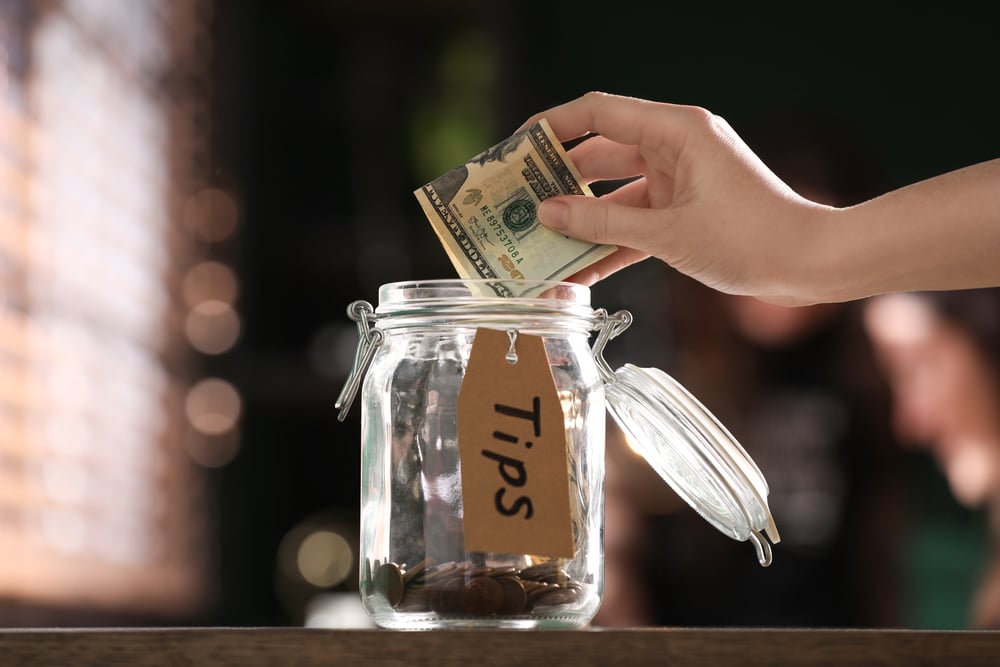Ever notice how you're paying payroll taxes on money that never even touched your bank account? For restaurant owners, salon managers, and anyone else with tipped staff, it's a frustrating reality: your customers leave tips, but you still pay the employer portion of taxes on them.
It's one of those head-scratching tax situations that doesn't seem fair. Why should you pay taxes on money your customers gave directly to your employees?
Good news – there's a solution many businesses don't know about. The Tip Tax Credit lets you recover those FICA taxes you're paying on employee tips. And unlike the temporary tax breaks that came with pandemic relief, this one's a permanent part of the tax code.
Contents |
| What counts as a tip? |
| What is the Tip Tax Credit and why does it matter? |
| Who can claim the Tip Tax Credit? |
| How do I claim the Tip Tax Credit? |
What counts as a tip?
Here's something that trips up many business owners: the IRS is very particular about what counts as a "tip" versus a "service charge." And only actual tips qualify for this credit.
According to the IRS, a real tip must be:
- Something the customer chooses to leave (not required)
- For an amount the customer decides (though suggesting percentages is fine)
- Not automatically added to the bill based on your policies
That mandatory 18% "gratuity" you add to parties of 8 or more? That's actually a service charge in the IRS's eyes, not a tip – which means it doesn't count toward this credit.
This isn't just splitting hairs – it affects your bottom line. Many restaurant owners add automatic gratuities to protect their servers from large parties who might undertip, not realizing they're giving up tax benefits in the process.
Should you ditch automatic gratuities? Not necessarily. Sometimes protecting your staff's income is worth the trade-off. But now you know the tax implications, so you can make that decision with all the facts on the table.
Tip Income Deduction for Employees
In addition to the Tip Tax Credit for employers, the One Big Beautiful Bill Act is giving service-industry workers a tax break of their own. From 2025 through 2028, employees can deduct up to $25,000 of tip income from their federal taxable income – no itemizing required.
There’s a phase-out for high earners: the deduction starts to shrink if your adjusted gross income is over $150,000 (or $300,000 for joint filers), reducing by 10% of the amount above those thresholds.
This is a big win for tipped workers like food servers, beauticians, and bartenders. A full list of eligible roles will be published, but most traditional tipping professions are expected to qualify.
You can now tell your staff there's finally a tax benefit for them, too – not just the business.
What is the Tip Tax Credit and why does it matter?
Here's the basic problem: When your staff gets tips, the IRS considers that taxable income. As their employer, you're stuck paying the employer portion of FICA taxes (Social Security and Medicare) on all their earnings – including those tips that came straight from your customers' pockets.
It doesn't make much sense, does it? You're paying taxes on money that bypassed your business entirely.
The Tip Tax Credit fixes this by giving you back the employer-side FICA taxes you paid on those tips. It's essentially the IRS acknowledging, "Yeah, that's not really fair to make you pay taxes on money you didn't distribute."
There's another reason this credit exists, of course. The IRS knows cash tips sometimes have a way of going unreported. By offering this credit, they're giving businesses a financial reason to track and report all tips properly. You get tax relief, and they get better compliance – a rare tax provision that actually works for everyone involved.
Who can claim the Tip Tax Credit?
Not every business with tips qualifies. The IRS has three main requirements:
Your business needs to be in an industry where tipping is normal. The IRS doesn't spell out exactly which businesses qualify, but the common-sense test works here: restaurants, bars, hotels, salons, and similar service businesses typically make the cut. If customers would feel odd NOT leaving a tip at your place, you're probably eligible.
You need to have actually paid FICA taxes on the tips. Pretty straightforward – you can't get a refund for taxes you haven't paid. If the tips were received but you haven't sent in the tax payment yet (like for December tips), you're still good as long as you've recorded the obligation.
Your tipped staff must make at least minimum wage. Here's where Florida business owners catch a break: Florida's minimum wage for tipped employees ($10.98/hour in 2025) is well above what the IRS requires for this credit ($5.15/hour). So if you're following Florida labor laws, you've already cleared this hurdle.
How do I claim the Tip Tax Credit?
Ready to get your money back? Here's what you need to do:
First, get serious about tracking tips. You'll need solid records of every tip your employees receive, whether through credit cards or cash. Most modern POS systems make this pretty easy, but make sure your team knows why accurate reporting matters. The IRS won't give you credit for taxes on tips they don't know about.
Next, file Form 8846 with your taxes. This form (with the catchy title "Credit for Employer Social Security and Medicare Taxes Paid on Certain Employee Tips") is where you'll calculate how much credit you're entitled to based on the FICA taxes you paid on tips throughout the year.
Finally, watch how your business structure affects the credit. If you run an S-Corp, Partnership, or LLC taxed as either (like many small businesses do), there's a twist: the credit doesn't stop at your business tax return. Instead, it flows to your personal tax return through your K-1. That means it directly reduces your personal tax bill – not just your business taxes. For many small business owners, this creates an unexpected bonus that's easy to miss if you're not looking for it.
The bottom line
For busy restaurants, salons, and service businesses with several tipped employees, this credit can add up to thousands in tax savings each year. And now, with the new deduction for tipped employees, there’s even more reason to report tips accurately – both you and your staff benefit.
The money you save isn't just a nice accounting trick – it's cash you can put to work. Maybe that's finally upgrading your POS system, running some local ads to bring in new customers, or setting aside a cushion for those inevitable slow periods.
At DiMercurio Advisors, we've helped dozens of local restaurant and service business owners take advantage of this credit. We know the day-to-day challenges you face – from the seasonal ups and downs to the headaches of managing tipped staff.
We don't just fill out the forms; we dig into your specific situation to find opportunities others might miss. The Tip Tax Credit is often just the beginning of what we can help you save.
Want to know if you're leaving money on the table with the IRS? Give us a call. We'll help you set up the right systems to claim every dollar you deserve.








